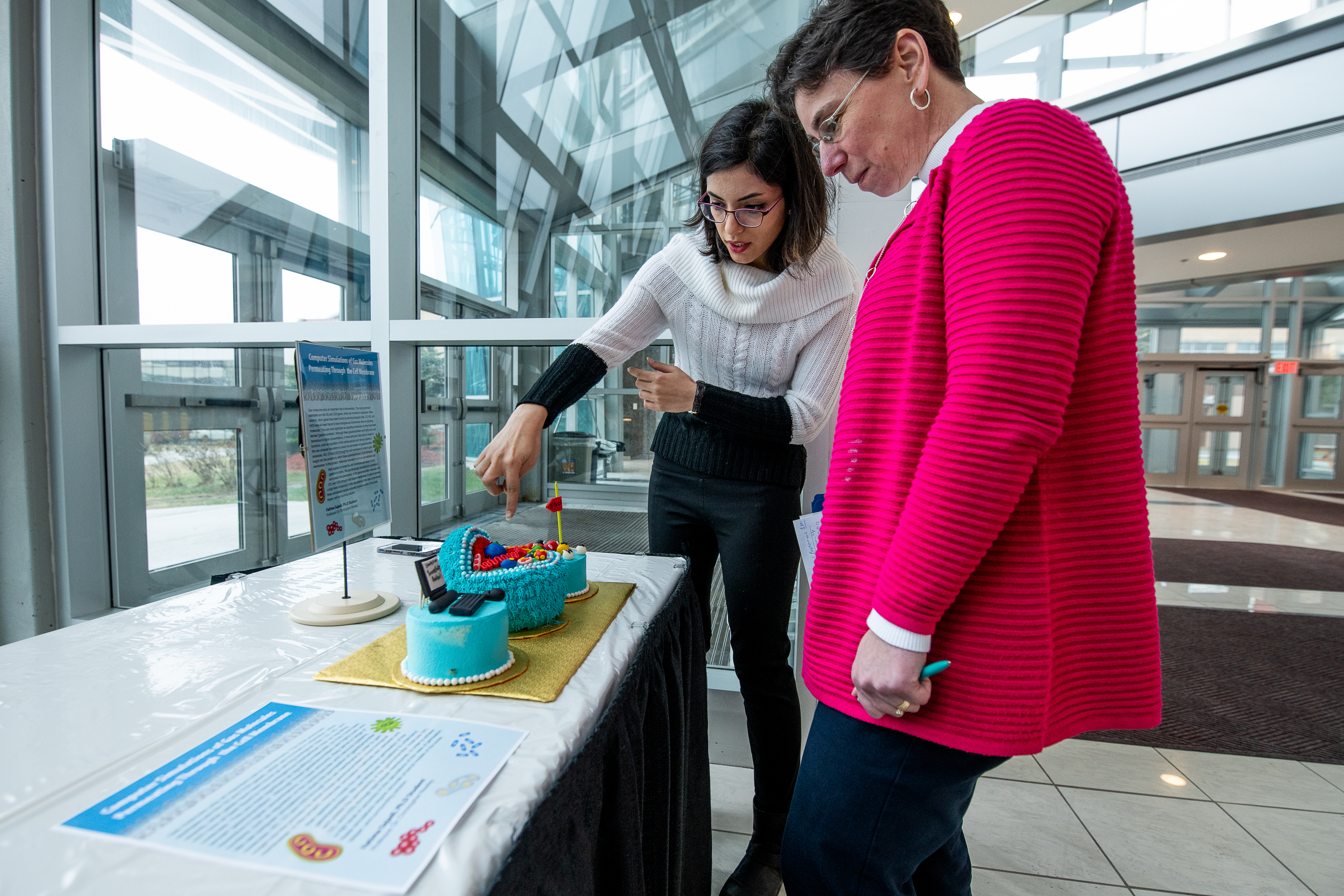Bake Your Thesis brings together sweets and scholarship
Canada’s immigrant communities rendered in fondant on a cake; the experience of trauma depicted as a cinnamon bun: these are some of the confections that were part of the first Bake Your Thesis competition at Memorial University, where participants said the process of turning their research into an edible confection was a great new way to look at their work – as well as a welcome break from it.

Kelly Piercey is pursuing a master’s in social work and works with young people. “The first time a young person disclosed to me sexual abuse or sexual exploitation, I felt very unprepared,” Ms. Piercey said. She worked her way through it, but imagined others had felt similarly; her research now involves developing a training module on how to respond to disclosures from young people about sexual abuse and exploitation.
Ms. Piercey represented that via a cinnamon bun. “A cinnamon bun has a very detailed recipe, and a recipe is very much like a training module,” she said. “You start with ideas, you practice, you need the right components, but sometimes you have to make it your own,” she said. “The cinnamon bun itself also represents the young person’s layers of trauma, and it’s the professional’s job to help get through those layers to the centre and help the person heal.”
Baking is one way that Ms. Piercey, whose entry won “best public communication,” deals with the stress of her job, and the event provided a way to bring that to her career and studies. “I do it as my hobby, I do it as a stress-reliever because I have a pretty stressful job ,” she said. “It’s putting together two things that I really like.”
Coming up with the baked portion of the presentation was only one part of Bake Your Thesis. Each scholar – all from different fields of study, including chemistry, nursing and sociology – had to write an explanation of their research in a format that would be understandable to non-academics.
“It’s not just having fun,” said Francesca Boschetti, who both helped put the competition together and participated (with a cake that represents her PhD research on food, foodways and identity in Canadian immigrant literature). “We’re also trying to communicate our research in a way that is recognizable to the general public.”
The event was inspired by similar ones at universities in the United Kingdom, Ms. Boschetti said, and in addition to sharing the research it can also help students take a new approach to their work – and get past writer’s block.
“I think that for some students, if they are experiencing that, it could be a way to get a fresh perspective,” said Ms. Boschetti, whose entry was jointly awarded “most flavourful” with entrant Bahar Haghighat.
Memorial tries to provide opportunities for public scholarship for its graduate students, and events like Bake Your Thesis offer an alternative to the usual research-communication competitions, said Aimée Surprenant, dean of graduate studies. “When I heard about this particular one I thought it was kind of even better than the [usual] one where we get people to stand up and just talk about their work,” Dr. Surprenant said. “It also gives them a creative outlet for trying to figure out how to communicate their work.”
Comments
Post a Comment